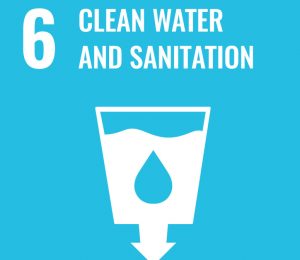By Maria Koulouri a PhD student in the Department of Civil and Environmental Engineering and a member of the second Transition to Zero Pollution PhD cohort and the Science and Solutions for a Changing Planet DTP
Today, approximately 3.1 billion people rely on improved on-site sanitation facilities, like pit latrines and septic tanks, to access sanitation services [WHO/UNICEF 2019]. The material that accumulates in such facilities, known as faecal sludge, can have detrimental environmental and public health impacts, if not safely managed.

The UN Sustainable Development Goal (SDG) 6 calls for universal access to sanitation services, as well as adopting sustainable management practices for the faecal sludge that is being contained and collected. At the same time, there is a new paradigm of looking at faecal sludge as a source of valuable resources to be recovered rather than just waste to be safely discharged. In this context, sustainable sanitation systems can support progress towards multiple SDGs, through the recycling of water, carbon, energy and nutrients.
My PhD work places resource recovery at the centre of faecal sludge management, using a treatment process called pyrolysis (the thermochemical conversion of biomass in an oxygen-limited or oxygen-free environment), to treat and recover resources from faecal sludge. The end-products of pyrolysis, a solid output known as biochar, a bio-oil and gas products, offer several reuse opportunities, including energy and nutrient recovery.
I will be investigating faecal sludge-derived biochars as organic fertilisers that can contribute to global food security by replacing unsustainable mineral fertilisers, which depend on depleting phosphorus resources and costly synthetic nitrogen forms. By using organic fertilisers made from faecal sludge, we can contribute not only to SDG 6 (“Clean water and Sanitation”), but also others including “Zero hunger” (SDG2) and “Responsible consumption and production” (SDG12).
These interactions among SDGs make it evident that sanitation sits within a wider system of human interventions and natural ecosystems. Therefore, faecal sludge management choices can impact and be impacted by the environment around them. Investigating such interactions can be complex and requires the adoption of a systems approach to define the sanitation and faecal sludge management chain.

I am using systems thinking and life-cycle analysis tools to describe some of the key interactions among faecal sludge management components and study the integration of man-made sanitation systems to the natural and socio-economic environment in which they function, through resource recovery. My work will include assessing environmental impacts of real-world sanitation case studies to better understand the effects that sanitation interventions may have on their surrounding environment. I hope that this work will contribute to global sanitation and resource recovery efforts, ultimately helping developing countries meet the SDGs.